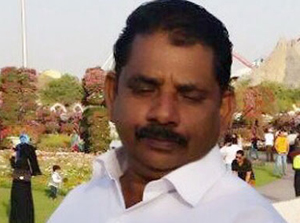New Delhi, Jan 9: Crime in India has increased by 1.3 per cent in 2018 compared to 2017 with the registration of over 50 lakh cognisable crimes, reveals 2018 edition of 'Crime in India' statistics released this week by the National Crime Records Bureau (NCRB).
As per the NCRB, which works under the Ministry of Home Affairs, a total of 50.74 lakh crimes, including 31.32 lakh under the Indian Penal Code (IPC) and 19.41 under the Special Local Laws (SLL) was registered in 2018.
The report says that there was an overall rise of 1.3 per cent in the registration of cases in 2017, but crime rate per lakh population was down to 383.5 in 2018 from 388.6 in 2017.
A total of 1.05 lakh cases of kidnapping and abduction across the country was registered in 2018, showing an increase of 10.3 per cent over 95,893 such cases in 2017, the latest NCRB report said.
A total of 29,017 murders were reported in 2018, up by 1.3 per cent over 2017. Of which, disputes were reported as the motive of the highest number of murder cases (9,623) followed by personal vendetta and enmity (3,875) and gain (2,995).
Accidental deaths have also seen a rise to 4,11,824 in 2018 from 3,96,584 in 2017 -- a rise to 31.1 per cent from 30.3 per cent in 2017.
The NCRB report 'Crime in India-2018' said in its disclaimer section that clarifications on data were pending from West Bengal, Arunachal, Meghalaya, Sikkim and Kolkata. Hence, the data from these states and city may be treated as provisional.
No let up in road accident deaths in 2018: NCRB
There were 1,35,051 incidences of deaths due to negligence relating to road accidents in 2018, according to the latest NCRB report on "Crime in India -2018".
When compared to the previous two years, the statistics show that there has been no significant change in the overall situation.
In 2017 there were 1,34,803 incidences reported from across the country, while in 2016 it was 1,35,656.
Incidents of 'Hit and run' accident cases have climbed up marginally over the last year, if the latest figures are any indication. In 2018, the 'hit and run' cases reported were 47,028. In 2017, the cases registered under this category were 43,727.
The data collection process for NCRB report on "Crime in India - 2018" including clarifications from the states/UTs/central agencies started in July, 2019 and continued till December, 2019.
People involved in farming sector, including 5,763 farmers or cultivators, committed suicide during 2018, the report reveals.
The annual data was released around three months after the government released the National Crime Records Bureau (NCRB) report on "Crime in India 2017".
As per the latest data, of the 10,349 persons who committed suicide in 2018, 4,586 were agricultural labourers.
The number of suicides in farming sector in 2018 accounts for 7.7 per cent of the total suicide victims (1,34,516) in the country, the NCRB data said.
Suicides in India in 2018 rose to 1,34,516 from 1,29,887 in 2017. Rate of suicides is also up from 9.9 in 2017 to 10.2 in 2018.
In 2017, a total of 10,655 farmer suicides were reported.
West Bengal, Bihar, Odisha, Uttarakhand, Meghalaya, Goa, Chandigarh, Daman and Diu, Delhi, Lakshadweep and Puducherry reported zero suicides of farmers or cultivators and agricultural labourers during 2018, said the report.
 Shahul Hameed, 58, had been living in the UAE for more than 35 years and just after calling it a day, he was all set to fly home from Abu Dhabi, boarding pass in hand.
Shahul Hameed, 58, had been living in the UAE for more than 35 years and just after calling it a day, he was all set to fly home from Abu Dhabi, boarding pass in hand.










Comments
Inna Lillahi Wa Inna Ilaihi Raajioon
??? ??? ? ??? ???? ???????
Very Tragedy
Most of Keraleans in the Gulf end-up returning home in Coffins. The lust for money is high among these people.
Add new comment